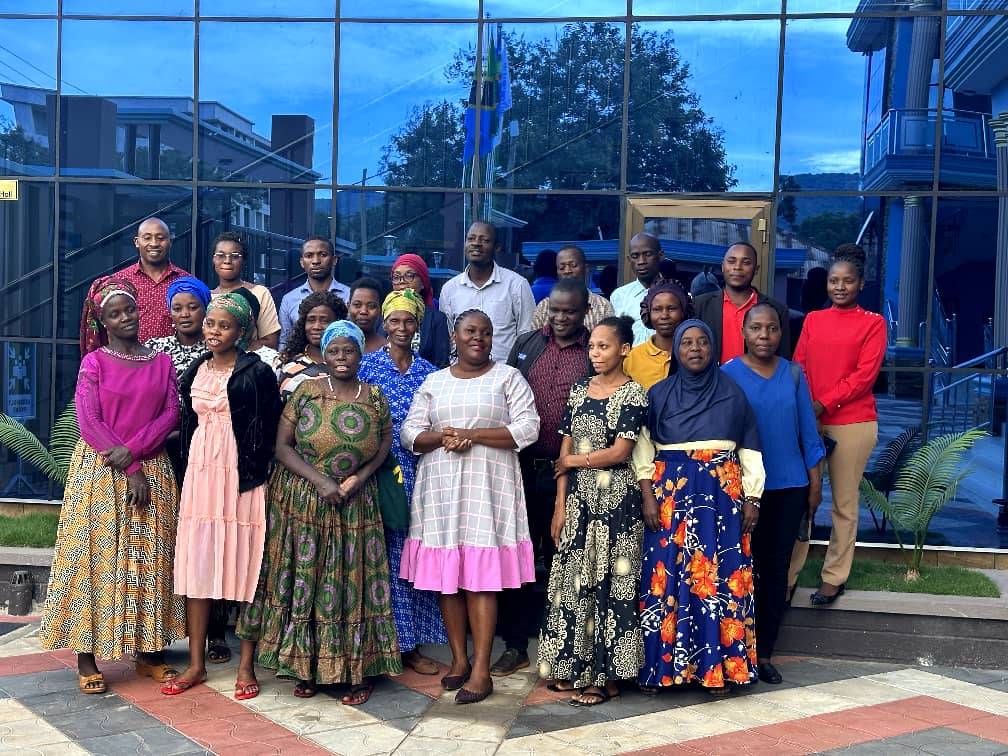Our #16Days16Women Campaign: Empowering Rural Women, Glory Mlaki’s Journey to Climate Justice

Glory Mlaki is a Tanzanian woman activist, policy analyst, researcher, trainer and facilitator with over 15 years working on issues of human rights, legal, sexual and gender based violence. She also cordinaes various livelihood initiatives and projects focused on strengthening community capacities to adapt to climate change and enhance their wellbeing in rural communities.
Glory’s journey began as a Legal Officer providing aid to survivors of domestic and gender-based violence. While working with women and girls, she uncovered a deeper issue: the profound link between climate change and violence. Economic instability from climate effects such as droughts and floods often fueled domestic violence, leading Glory to expand her focus. “I realized that addressing climate change could mitigate the root causes of violence,” she shares.
By integrating climate advocacy with her legal expertise, she has developed innovative approaches to strengthen community resilience.
Glory’s work centers on empowering women to take the lead in climate adaptation, ensuring that their voices are heard in policies and decision-making.
Creating Sustainable Solutions
Glory’s work focuses on building both immediate and long-term resilience in rural communities. From organizing tree planting and waste management projects to training women in organic farming and renewable energy use, her efforts improve livelihoods while protecting the environment. She also works to simplify complex climate policies and disseminates them in local languages, enabling communities to understand and advocate for their rights.
Her projects have supported small-scale producers, miners, and adolescent girls, equipping them with tools and knowledge to transition to climate-resilient activities. For example, she has helped women shift from traditional farming to sustainable businesses, despite challenges like limited capital and technical expertise.
Glory emphasizes the critical role rural women play in climate adaptation.
Women hold traditional knowledge in farming, food storage, and resource management. Their leadership ensures sustainable practices are passed to future generations,” she explains.
By fostering women’s leadership in climate action, Glory addresses systemic barriers such as gender norms, lack of education, and restricted access to resources.
Through capacity-building workshops, Glory empowers women to participate in decision-making at all levels. She also amplifies their voices through media platforms and advocacy campaigns, ensuring their priorities shape climate policies.

Vision for a Gender-Equal, Climate-Resilient Africa
For Glory, a gender-equal, climate-resilient Africa means equitable access to resources, education, and decision-making power for all.
We need policies that prioritize women’s leadership and fair distribution of climate finance,” she says. Her vision includes empowering marginalized groups and integrating Indigenous knowledge into climate solutions.
Glory is passionate about mentoring young women, encouraging them to take on leadership roles in climate action. She believes that equipping youth with knowledge, opportunities, and platforms to lead will ensure sustainable progress in the fight against climate change.
Call to Action
Glory urges individuals and organizations to support grassroots leaders by funding community projects, amplifying women’s voices, and sharing success stories.
We need to unite, advocate for policy changes, and participate in global platforms to bring attention to the realities faced by women on the ground,” she says.

As a steadfast advocate for climate justice, Glory Mlaki continues to inspire transformative change, proving that empowering women is key to building resilient and sustainable communities.




